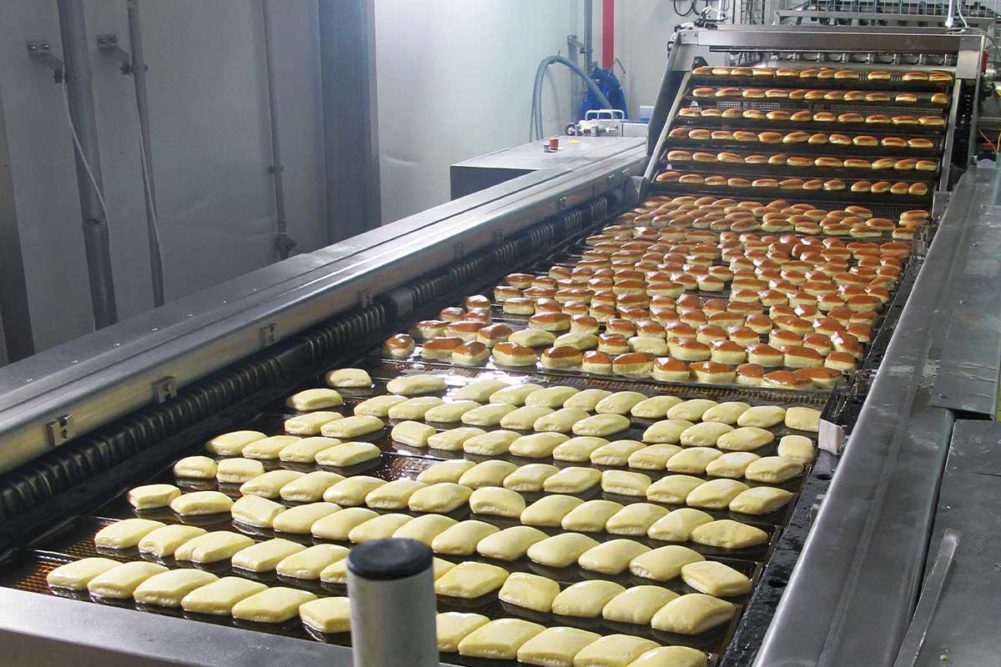While many bakeries have been struggling with shortages of ingredients over the past year, supply chain issues dramatically affecting the packaging department range from the availability of corrugated cases to plastic clamshells and flexible films remain another big problem.
“We have had more packaging challenges with quality and service than I have seen in my career,” said Clay Mullins, vice president of supply chain and logistics, Crown Bakeries, Brentwood, Tenn.
“Many of these packaging plants have so few employees because of COVID, but we’re also seeing the flu run pretty rampant, and when you only have 30 people in your corrugate plant and the flu takes out five of them, that hurts,” he observed.
Stockpiling is good in theory but not always practical.
“Bakeries are small, capital is tight, interest rates are high and getting higher,” Mr. Mullins explained. “We can’t carry a lot of packaging inventory. Bakeries just don’t have the warehouse space.”
Recently, he visited with a packaging supplier and asked the manager if the plant was running at 100% capacity.
“He looked around and said, ‘I’m running to 100% labor ability,’ ” Mr. Mullins recalled. “On first shift, they’re pushing 100% capacity. On second shift, they run two lines and on third shift, they run one. They just can’t find the people to run full.”
Supply chain and labor shortages have fueled inflation. The November Producer Price Index for food manufacturing jumped 11.8% from a year ago.
Year-over-year egg prices spiked 244%, grains increased 19% and edible oils rose 14%, while diesel fuel surged 60%, reported the Consumer Brands Association. More recent data, however, shows that the price of eggs is dropping steadily off its highs.
Consumers seem to understand what businesses are going through during this volatile period. In a December 2022, Consumer Brands-Ipsos poll, 49% of the respondents said they believed that solving the problems causing supply chain pressures would have a positive impact on inflation.
Additionally, 71% of those surveyed said they are very or moderately concerned that labor shortages will disrupt the supply chain.
Bakeries relying on automation to reduce costs and alleviate the labor shortage need patience, which also may be in short supply.
Jim Warren, BEMA chairman and vice president, Exact Mixing, Reading Bakery Systems, noted new equipment delivery time has increased between 50% and 90% in the past two years for most suppliers.
Most delays have come from components, especially electrical controls, and manufacturers don’t expect much improvement in 2023.
“The good news is that equipment system suppliers have gotten better at managing these issues,” Mr. Warren said. “Now, when they need one item, they’ll order four, then put three in inventory. Suppliers know that electrical components and controls need to be the first parts ordered when a new equipment order is received. When they can’t source a needed part, they will be creative and think outside the box. While other materials like steel are also experiencing long delays, those extended material timelines tend to fall within the extended electrical components’ delivery time frames.”
Mr. Warren pointed out bakeries often must adjust production schedules on the fly due to the varying number of employees available on a given day, which negatively affects bakers’ abilities to consistently fulfill orders.
“It’s become a ‘ship what you can, when you can’ mentality, realizing that your competitors are experiencing the same problems,” he explained.
To stabilize their operations and future-proof them, he added, bakery equipment and production lines are now designed with automation and versatility in mind.
“Bakers want to run production lines without having to rely on a large workforce, and they want to be able to run a variety of products on one system,” Mr. Warren said.
This article is an excerpt from the February 2023 issue of Baking & Snack. To read the entire feature on Supply Chain, click here.





